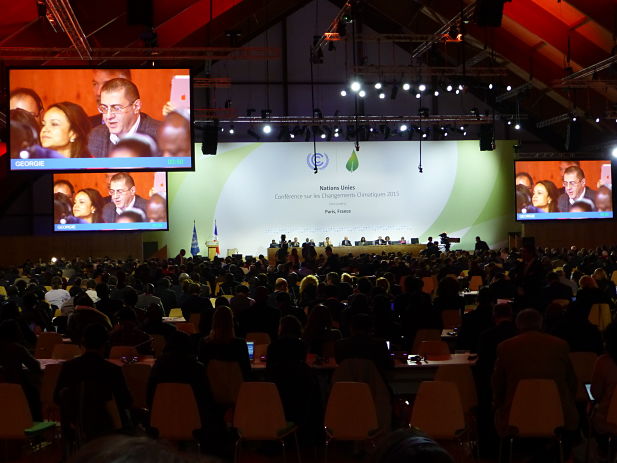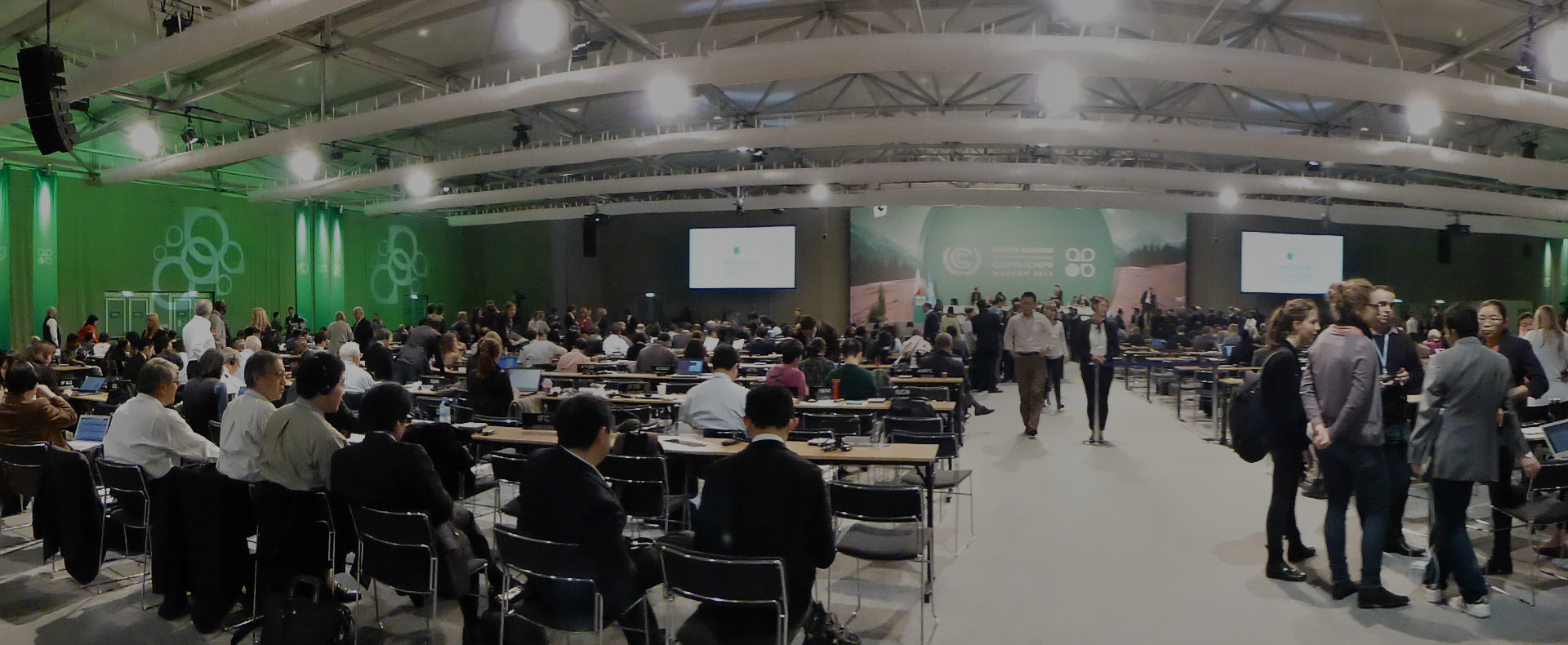The Paris Agreement Is a Good Deal for the World (and Pro Bono Lawyers)

Posted on 29 January 2016 by Jesse Medlong
As lawyers, we all know pro bono makes the world a better place. Every year, pro bono lawyers help millions of clients gain access to justice in widely varied settings around the globe. But pro bono can also literally help save the planet. I had the opportunity to experience that first hand in December when two other DLA Piper lawyers and I represented the country Georgia in negotiating the historic Paris Agreement on climate change.
For the last four years, DLA Piper has represented Georgia in the annual Conference of the Parties (COP), which is the primary negotiating forum under the United Nations framework Convention on Climate Change, or UNFCCC. Five years ago, talks toward a new global climate accord broke down in Copenhagen as many developing country parties to the Convention rejected an agreement they felt inadequately represented their voices. In the years since, the 196 parties (that's 195 countries, plus the EU) struggled to lay the groundwork for 2015, the deadline set in Copenhagen for the international community to either adopt the most important and ambitious agreement on climate change since the 1992 Convention itself—or not. Failure would mean leaving humanity’s response to rising temperatures and sea levels at the mercy of uncoordinated national agendas. So it was at this late date that the 21st COP met in Paris.
And the date is late indeed. 2015 was the hottest year on record, just as 2014 had been. Some small island countries face an imminent existential threat. And the growth in atmospheric carbon concentrations shows no sign of slowing. Even with these dire trends as the backdrop, bringing together nearly 200 countries and asking them to place global good ahead of national interests and to reach unanimous agreement is every bit as difficult as it sounds.

But global challenges require global solutions. And global solutions often require lawyers. In these climate talks, as in other multilateral negotiations under the UN system, rich countries have small armies of lawyers and diplomats to monitor every issue and fight for every concession. Developing countries, on the other hand, have much smaller delegations and often cannot even place a negotiator in every room. That’s where our volunteer lawyers came in.
The three of us on the ground doubled the size of the Georgian delegation, helping to ensure coverage in all negotiating sessions. Perhaps more important, though, was the team of volunteer lawyers supporting our delegation from DLA Piper's offices across the U.S. and Europe. Those volunteers provided daily updates on the iterations of treaty and decision text that were emerging from the COP’s back offices. The team also conducted on-the-spot research as questions arose in the course of negotiations. In other words, DLA Piper lawyers gave the Georgian delegation the kind of support that normally only wealth countries enjoy.

And at the end of a grueling two weeks of hard-fought negotiations, the world got the agreement we all desperately need, and Georgia’s interests were properly represented. The agreement isn’t perfect, but it is ambitious, universal, and legally binding. It sets a path to reduce global greenhouse-gas emissions while giving due recognition to the interests of all the parties involved. The Paris Agreement is the essential next step in the long road to humanity’s sustainable future. And I’m proud to say we were a part of that process.
Not every firm can provide pro bono opportunities of this kind, but DLA Piper’s global reach makes it possible. That presents a unique opportunity for us as lawyers, but also for our client, Georgia. And we get to make the world a better place at the same time. Much like the Paris Agreement, that seems like a pretty good deal to me.
Assisting Georgia with Climate
Change Negotiations
